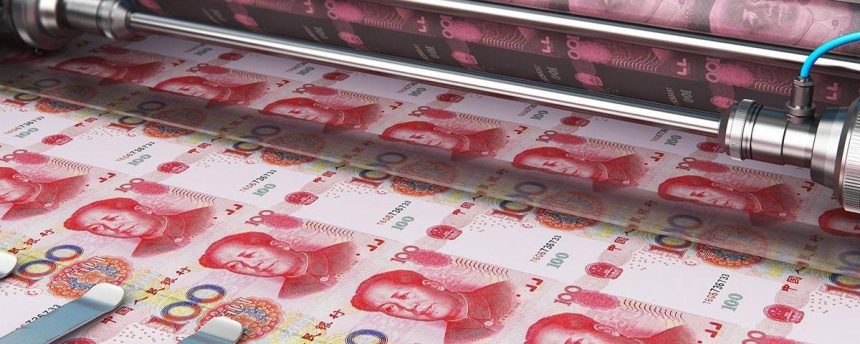Key News
Asian equities were largely higher as Japan outperformed post-holiday.
After yesterday’s close, the People’s Bank of China (PBOC), China’s central bank, announced it will “strengthen counter-cyclical and cross-cycle regulation” as intra-bank lending rates are expected to be cut along with the bank reserve requirement ratio. The verbal jawboning helped Mainland China manage a small gain after yesterday’s rout driven by news that mutual fund families would be allowed to increase fund redemptions. However, I did not see significant redemptions from China-listed equity ETFs, including those with Hong Kong exposure.
The PBOC’s announcement extended the rally in bonds at the expense of Mainland stocks. If you know they are going to cut rates, why not buy bonds? Bonds indeed rallied, with the 10-year Chinese Government Bond Yield hitting a 52-week low, which is a level last seen in April 2019 and near the lowest level reached since data became available in 2006. As a result, the ratio of Mainland stocks’ dividend yield to the 10-year Treasury yield hit an all-time high. However, the PBOC did not actually cut rates yet, which means money will continue to go into bonds over stocks. This is not an issue for Hong Kong stocks, however, as their interest rates are tied to US Federal Reserve policy due to the US dollar peg. With Mainland indices sitting at support levels, the PBOC should cut rates imminently to disincentive the trade.
The Civil Aviation Administration of China expects 80 million people will travel by air during the upcoming Chinese New Year holiday, which would represent a +45% year-over-year (YoY) increase and a +10% increase from pre-COVID (2019) levels. Chinese airlines are expected to add 2,500 international flights for the forty days around New Year’s. The release lifted travel plays in both Hong Kong and Mainland China. China Tourism Group Duty Free gained +6.39%, coincidentally reported preliminary 2023 results with revenue up +24% YoY and net profit up +34%.
Hong Kong opened higher but faded into the session as Hong Kong’s most heavily traded stock Tencent fell -1.53%, despite another healthy buyback and a potential bid for TikTok’s gaming business. Other heavily traded Hong Kong stocks overnight included Meituan, which fell -4.6%, Alibaba, which fell -0.85%, and BYD, which gained +1.37% after a sell-side analyst noted that EV sales are growing, and HSBC
HBA
Internet companies are hosting pre-earnings blackout calls, which you can see in analyst price target adjustments after the call. It is very clear that Alibaba is talking down analyst expectations as several analysts cut price targets. I would hope they plan on paying another dividend.
President Xi’s recent speech on corruption may have weighed on sentiment, though as the sectors of focus are not investor favorites, except for healthcare, which rebounded in Hong Kong by +1.7% after yesterday’s steep fall. The US 10-year Treasury yield is still above 4%, which is likely the biggest factor in advance of further US inflation data as higher-for-longer begins to take hold. CNY and the Asia Dollar Index were off slightly overnight.
Taiwan’s Presidential election is this weekend as the current party is projected to be reelected, even though the current President will reach her term limit.
Has anyone read the Financial Times article on the US-based EM debt hedge fund buying distressed Chinese developers’ bonds? Good article, though frustrating as I’ve been pounding the table on this trade for months. I can’t get anyone to look at the trade despite receiving 2X the yield of the US high yield. After mentioning this trade last week, I had one reader reach out to me. It reminds me of the character Norm from the 1980s sitcom Cheers, who, when confronted with a frustrating situation and giving up, would say, “Pass the beer nuts.”
The Hang Seng and Hang Seng Tech indexes fell -0.21% and -0.87%, respectively, on volume that decreased -3% from yesterday, which is 79% of the 1-year average. 248 stocks advanced, while 205 declined. Main Board short turnover declined -15.39% from yesterday, which is 78% of the 1-year average, as 17% of turnover was short turnover (remember Hong Kong short turnover includes ETF short volume, which is driven by market makers’ ETF hedging). The value factor and small caps “outperformed” (i.e. fell less than) the growth factor and large caps. The top-performing sectors were Health Care, which gained +1.7%, Technology, which gained +0.31%, and Utilities, which gained +0.10%. Meanwhile, the worst-performing sectors were Communication Services, which fell -1.35%, Real Estate, which fell -1.07%, and Consumer Discretionary, which fell -1%. The top-performing subsectors were pharmaceuticals, foodstuffs, and household products. Meanwhile retail, software, and semiconductors were the among the worst-performing. Southbound Stock Connect volumes were moderate/light as Mainland investors sold a net -$515 million worth of Hong Kong-listed stocks and ETFs. China Mobile, China Shenhua, and CNOOC were small net buys within the mutual market access program, while the Hong Kong Tracker ETF was a moderate net sell, Tencent was a small/moderate net sell, and Meituan and the Hang Seng China Enterprise ETF were small net sells.
Shanghai, Shenzhen, and the STAR Board were mixed +0.2%, +0.34%, and -0.19% on volume +2.61% from yesterday, which is 77% of the 1-year average. 3,405 stocks advanced, while 1,421 declined. The value factor and small caps outpaced the growth factor and large caps. The top sectors were discretionary +1.18%, real estate +1.02%, and energy +0.49%, while communication -1.03%, staples -0.39%, and financials -0.09% were the worst. The top sub-sectors were restaurants, aviation, and forest, while shipping, telecom, and software were the worst. Northbound Stock Connect volumes were light/moderate as foreign investors bought $2 million of Mainland stocks, with TZE a small net buy, BYD and CITS moderate net buys, while Kweichow Moutai, BOE, and Gangfang Lithium were small/moderate net sells. CNY and the Asia dollar index were off slightly versus the US dollar. Treasury bonds rallied while copper and steel fell (again).
Last Night’s Performance
Last Night’s Exchange Rates, Prices, & Yields
- CNY per USD 7.16 versus 7.16 yesterday
- CNY per EUR 7.83 versus 7.85 yesterday
- Yield on 10-Year Government Bond 2.48% versus 2.51% yesterday
- Yield on 10-Year China Development Bank Bond 2.69% versus 2.71% yesterday
- Copper Price -0.10%
- Steel Price -0.33%
Read the full article here
















